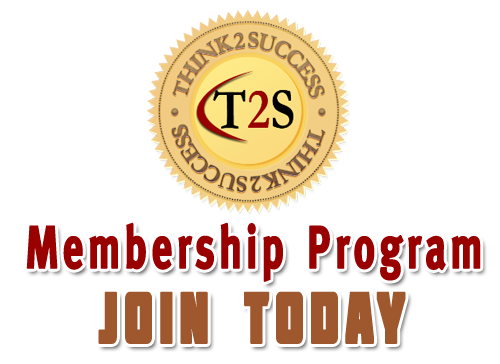People do not rise beyond the limitations of their blind spots without an effective plan to deal with them. Here are 6 that, left unchecked, will destroy careers and render people ineffective.

Photo courtesy of funnyuse.com
Recently my wife asked me to identify one of her weaknesses. You might guess how this ended but humor me for a moment. I did my best to avoid answering it, but she pressed me so I told her I would give her one of her blind spots. As gently as I could, I advised that, on certain topics, she has a tendency to become defensive when receiving feedback. Her response – “I don’t see that!” My response – “Exactly. That’s why it’s called a blind spot.” We spent the next 20 minutes in a debate as she became defensive about being defensive when receiving feedback. It was an amusing example of the blind spot in action. Thankfully, she does not have one of the career destroying blind spots.
Now everyone has blind spots. In John Maxwell’s podcast The Blind Spot, he defined them as “areas in our lives in which we continually do not see ourselves or our situations realistically”. Ask anyone who knows you well, and they can identify yours.
In his podcast, John identified 6 blind spots, and what I’ve learned is that failure to have a plan to minimize the impact of any of the 6 will render a person ineffective putting their long-term career success at serious risk. Below you will find an overview of the 6 blind spots John identified, and I provide the actions anyone who has them can take to minimize the impact of each. So let’s review them.
A Singular Perspective
People with this blind spot only see things from their perspective. Sometimes they’re so focused on their “way” that they don’t sense what other people think or feel. John admitted he has this one, and he amusingly says his motto could easily be described as “Save time. See it my way.” Obviously he has figured out a way to keep this from derailing his success.
Action Required: One awesome suggestion John mentioned to minimize the singular perspective is constantly ask the people you work with and care about this powerful question: “What am I missing?” Eventually you’ll build a habit to offset this blind spot.
Insecurity
Insecure people are easy to spot because they are always doing inward checks and they have a hard time giving credit to others. They’re also threatened by others’ success preferring to use the crabs in a barrel approach to ensure no one rises above them.
Action Required: Consistently give credit to others and do things that enable the success of others.
Devaluing People
People who devalue others are control freaks. They expect their people to serve them. In many cases their approach to motivation is often driven by their needs as opposed to the needs of others.
Action Required: A great way to build a habit of valuing others is to regularly engage in “innovation” power talks. Have meetings where you ask questions to elicit good ideas and use follow up questioning to convert good ideas into great ideas. And be sure to give credit to everyone without taking any credit for your contributions.
Ego Out of Control
In the podcast, John shared this awesome quote: “Pride is at the bottom of all great mistakes.” That is so true! Just ask Anderson Silva, famed Ultimate Fighting Championship (UFC) fighter. He had not lost a fight in years. Watch the stunning video as he blatantly taunts his opponent only to get knocked the heck out!
Action Required: Success breads ego whereas failure exacts humility. Keep things in perspective and maintain humility by having a SUCCESS team in place to confront you when your ego gets bigger than your humility.
Lack of Character
As John so correctly stated, “Character is the sum total of all of our everyday choices,” and a lack of character is often proven to be the most dangerous blind spot to leave unchecked. People do not climb beyond the limitations of their character or the character of the people they allow into their inner circle. Remember that.
Action Required: This is a very personal blind spot so it often requires a great deal of trust in others to receive feedback on your character. But you must. Identify at least 2 people of high character and ask them to be your character mentors. Schedule regular meetings with them to receive feedback on your choices and develop a strategy to always make the right decision in every situation.
Living in Our Weak Zone Instead of Our Strength Zone
We are intuitive in our areas of strengths, and blind spots typically reside in the areas we are not good at. To maximize your potential, it is imperative you spend 80% of your waking hours doing tasks in your areas of strength.
Action Required: Review your daily activities, and develop a plan that will enable you to build the habits to do tasks that you are good at. Take the Strengthsfinder 2.0 assessment to identify your strengths. Likewise, for tasks that are in your areas of weakness, develop a strategy to delegate or eliminate them to the extent possible.
It’s critical you identify your blind spots, and the easiest way to do that is to simply ask people who know you to identify them for you. Once identified, the focus should not be to get rid of them. The focus should be to develop strategies to overcome and minimize them. And that often requires you to rely on a SUCCESS team to provide guidance, mentorship, and coaching. So what are you waiting for? You now have an effective strategy. Get started working on your blind spot minimization plan today.
The Floor is Yours
What other blind spots have you seen that derail peoples’ success? Please share your feedback in the comments below.
For more tips and strategies on becoming more successful, email us at info@ictscorp.com, explore the rest of this website, subscribe to this blog, and follow me on social media (Twitter, LinkedIn, YouTube, and Facebook). By doing so, you will gain access to leading edge research on management and leadership development and have access to daily inspirational and motivational quotes that will drive your success trajectory upward. So don’t delay, follow me and think yourself to success today!




Inability to say “no”
This gets so many people into trouble. In an effort to keep peace or please others, some people end up taking on far too much. Many tasks they accept are inappropriate for them and preclude them from saying “yes” to better things. Learning to say “no” in a way that says “yes” to other things is a necessary skill for successful business people. I say this as a reformed “yes” person — that continues that struggle every day!